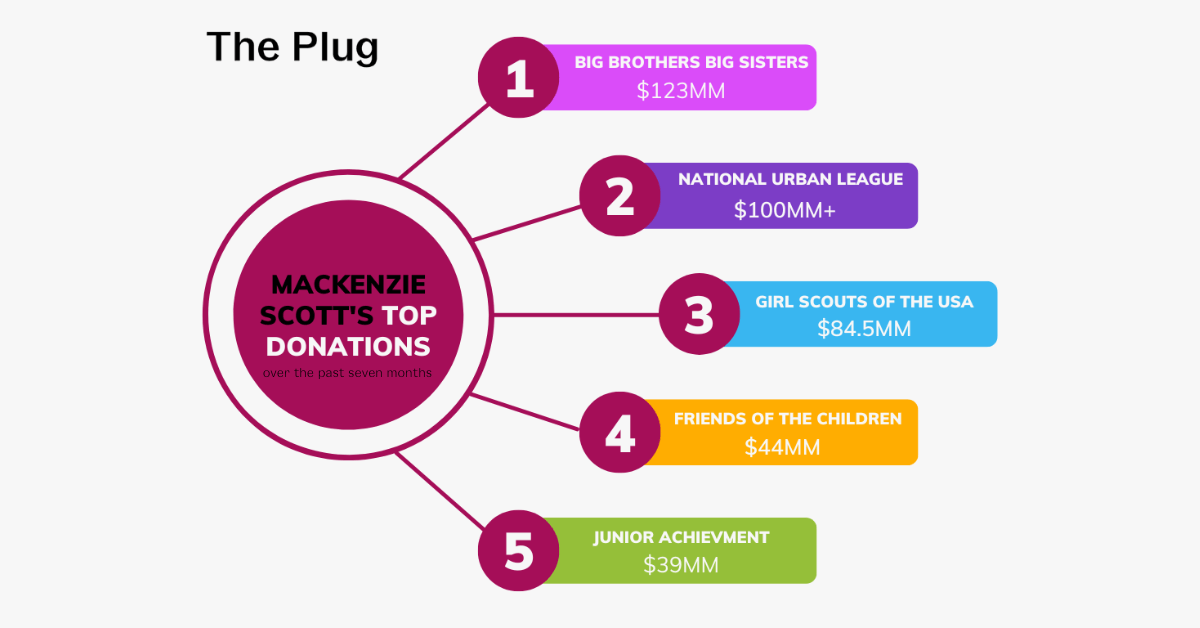It’s been a tumultuous few days for Black women in leadership.
Last Friday morning, the board of Black Girls CODE announced its removal of founder and CEO Kimberly Bryant from her position as leader and board member of the decade-old national organization.
Bryant came under fire back in December following a temporary administrative leave as the organization’s board began its investigation into former employee and volunteer allegations that Bryant’s leadership style was threatening and borderline abusive. The Plug spoke with several former employees at the time who chose to share their experiences on the basis of anonymity as they detailed stories of being demeaned in meetings, overworked, underpaid and part of a “fearful” culture that left damaging mental health effects with a few stating they had to undergo regular therapy.
An accompanying statement emailed to The Plug from the board mentioned Sofia Mohammed, who has served as Interim Executive Director since December, will continue to lead the organization while the board identifies a permanent replacement for the organization.
“We believe that this decision represents the best path forward for the organization and reflects the best interests of BGC, our community, and our important mission,” said Heather Hiles, Chair of BGC’s Board of Directors.
Bryant, who has denied the claims against her, has remained actively vocal on social media, announcing lawsuits against her former board, calling out specific board members for unfair treatment, and stating that she was removed unjustly and without severance.
We were unable to obtain details of the investigation into the allegations of workplace misconduct against Bryant, which are being kept confidential, but did learn from a spokesperson that the former CEO was “paid her accrued vacation in accordance with California state law.”
There was no immediate comment on whether or not Bryant received professional development support following the initial employee complaints, which third-party firm conducted the investigation, nor how the existing employee sentiment on the new transition has affected the organization’s staff and subsequently will affect its services to families and girls it serves.
Bryant’s work and successes in creating an organization for the benefit of Black girls was visionary and set the bar for technology education, leveraging a franchise/chapter model with a focus on a demographic of young people who have historically been underrepresented in the STEM industry at large. During her tenure, Bryant successfully struck deals with tech giants like Google, Lyft and Microsoft, among others, and served over 20,000 young women across America and South Africa.
The brand of Black Girls CODE found its way into pop culture platforms, earning Bryant television appearances on Good Morning America, profile features in Fast Company and Black Enterprise among others, as well as a TED Talk evangelizing and advocating for the mission of introducing Black girls to programming and computer science-based learning as well as mentorship early and frequently.
Following the numerous threads of support for the founder shared under Black Girls CODE social media accounts, there’s no doubt that Bryant’s removal stings.
A SaveBlackGirlsCODE website features a statement from what appears to be Bryant’s attorneys dated August 16th with a move to sue the Black Girls CODE board and namely its board members (who are noted Black tech and corporate leaders) Heather Hiles (former CEO of PathBrite), Stacey Brown-Philpot (former CEO of TaskRabbit), and Sherman Whites (Director at Ewing Marion Kauffman Foundation) who allegedly “led a charge to remove Bryant from the Board of Directors and terminate her employment as CEO of her organization.”
The Accountability Conundrum
As details emerge of Bryant’s ousting, a more important examination capturing the attention of long-time supporters and the greater Black innovation community is how this unfortunate ordeal has split supporters into two camps: advocates for the protection of Black women leaders from being ousted from their own organizations, particularly when it appears that white male counterparts receive far more grace and support to lead amid controversy; and those proffering that the core issue at hand is leadership accountability and how that accountability requires fiduciary and operational integrity on behalf of board leadership to protect an organization and its mission from serious allegations brought by its employees or stakeholders.
Historically, Black women leaders, particularly in corporate environments where they remain sorely underrepresented, have faced discrimination and microaggressions, as well as additional scrutiny of their leadership style — significantly more than their white male and female counterparts.
The 2021 Women in the Workplace study by McKinsey, in partnership with LeanIn.org, revealed that “women are more likely than men to have their competence questioned and their authority undermined, and women of color and other women with traditionally marginalized identities are especially likely to face disrespectful and ‘othering’ behavior.”
If an answer on how we address the management of internal culture issues at Black-women led organizations is provided, it is and will continue to be difficult to ascertain a pathway accepted by all that also considers the historical treatment of Black women, those in leadership, and those who are responsible for how those in leadership govern themselves for the benefit of their companies.
Engaging in front of the Closed Door
Dawn Dickson, CEO and Founder of PopCom and Flat Out of Heels, replaced several of the board members of her intelligent vending machine company back in April, citing misalignment as well as bad actors who postured themselves as helpful to Black founders but allegedly showed her otherwise. Dickson has extensively called out bad behavior and encouraged other founders to do the same publicly, sharing that Black board members on her team have not always acted with the company’s best interest in mind or supported her leadership as CEO.
Dickson took to Instagram Live in the days following, sharing advice with those who tuned in on how to protect themselves from being removed from their companies in the event of a hostile takeover.
Very few founders of color, particularly Black women tech founders, have publicly shared how they have been treated in business, whether fearing retaliation or being ostracized from deals or ongoing funding or partnership support. However, that unspoken rule to keep quiet appears to be changing as founders like Dickson leverage their platforms to call out bad behavior.
“It’s important for Black tech leaders, especially those who were a part of creating the community that exists today, to continue to name and hold accountable, bad actors in the space and to call out inconsistencies,” Dickson told The Plug.
“It does not serve us to allow people to operate in our community that do not have our collective best interest in mind. Being a CEO is more than starting a business, it’s making sure to have the right organizational structure in place for that business to reach it’s full potential. It’s up to founders to continue to educate themselves on corporate organizational structures and board governance.”
White Guys Stay Winning
Amid the ongoing discussions around Black women’s leadership and accountability, news broke Monday that Adam Neumann, former CEO of WeWork, successfully raised $350 million for his new residential real estate startup, Flow, with funding led by noted venture capital firm, Andreesen Horowitz.
Neumann, who was ousted as CEO of WeWork in 2019, has been the subject of documentaries, investigations and scripted television series noting his epic rise and fail. He governed with an eccentric leadership style and lost over $1 billion in revenue in 2019 alone.
His recovery into another startup, just three years later, is still filling the news headlines as Black founders across Twitter name the double-standard:
“I wish I had the words to accurately describe how this makes me feel knowing the hoops I’m jumping through going through this raise.” – Viola C. L
Citing a June Crunchbase study on total Q2 funding invested into Black startups, Forbes journalist Rebekah Bastian tweeted:
Even high-profile Black women struggle to raise. During her keynote fireside chat at the Black Tech Week conference in Cincinnati this past July, retired tennis star and active venture capitalist, Serena Williams, spoke of her challenges raising a $100 million fund and her goal to support underrepresented founders, despite her fame and connections.
What Comes Next
While we have much more extensive data on the funding landscape for Black women founders than before, there is still very little examination of how Black women-led companies are treated and governed, whether they face higher risks of being removed from their boards, if they are extended second chances in the same vein as Neumann’s recent win or how Black board members might face the double challenge of supporting CEOs while also carrying our their commitment to protecting the company from the CEO who fails to lead in the best interests of the company’s progress.
As more Black women leaders across all levels share insight on their experiences behind the scenes, the more we can note patterns and objectively find solutions to address and course correct any and all hindrances to progress and fill in gaps of understanding, with the hope that leveling the playing field produces the type of outcomes we hope for.








